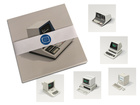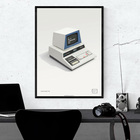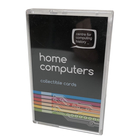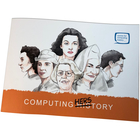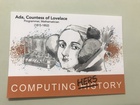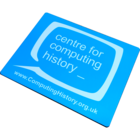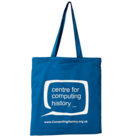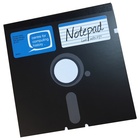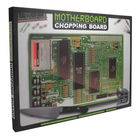
| Home > LEO Computers > LEOPEDIA > Other Memoirs, Reminiscences > Alan Kay |
Alan Kay
|
From Professor Alan Kay distinguished American Computer Scientist known for his work on Object Oriented Coding and winner of the Turing Award in 2003. I knew Maurice Wilkes slightly many years ago, Roger Needham years ago, and most recently have met Andrew Herbert. The latter two had spent some time at Xerox Parc, and it was Andrew who told me about the LEO Computers Society after I mentioned LEO as a good follow-on exhibit/story to TNMOC's recreation of EDSAC. He also explained about the society's museum presence in Cambridge. To me, there is more of an interesting parallel to Whirlwind development than to the IAS machine (especially with regard to scope and software). I think the LEO software schemes for the Lyons' businesses were both landmarks and early, and deserve to be more told in some kind of museum exhibit. The ARPA and then PARC computer work was very inspired by both the big ideas of the past and especially the amazing amount of work under difficult and primitive conditions to not just think about software uses, but to include both the design and making of software and hardware part of an integrated working practical whole system. Still, it's hard to beat the LEO story in this regard (I love it!). One of the nice and important properties of LEO is the wealth of documentation and detail -- although I gather that this doesn't extend to the actual software that otherwise could be resurrected via emulation. (Frank Land correction: All the manuals are digitised and there is a working emulation of the Master Routine and Intercode Translator. Intercode programs may be written, translated and run either freestanding or under the Master Routine. In addition we have listings of several customer programs, mainly from London Boroughs, as well as a few CLEO programs.) However, the wealth of early system planning and ambition is priceless. Parc was almost the opposite in that, though the planning was pretty crisp, there were not a lot of planning documents, but there are readable tapes of large parts of the SW, and working Altos (also very detailed emulations including the microcode etc), with the result that quite a bit of what actually got done can be demoed today. Very useful partial exceptions are CSL's minutes of the weekly "Dealer" meetings in which progress and discussion were shared, and also the 6 month and 2 year reports (I wonder if these got preserved somewhere, I didn't take mine from Parc, and now wish I had). In any case, though I am mostly thinking about how more context could be shown about the Alto, I can't help thinking about what could be done with LEO's history to make it more understandable by the public. Photo: Alan Kay receiving the Turing Award in 2003, courtesy of Ryan Johnson. Date : May 2022This exhibit has a reference ID of CH69135. Please quote this reference ID in any communication with the Centre for Computing History. |
Click on the Images For Detail
|


